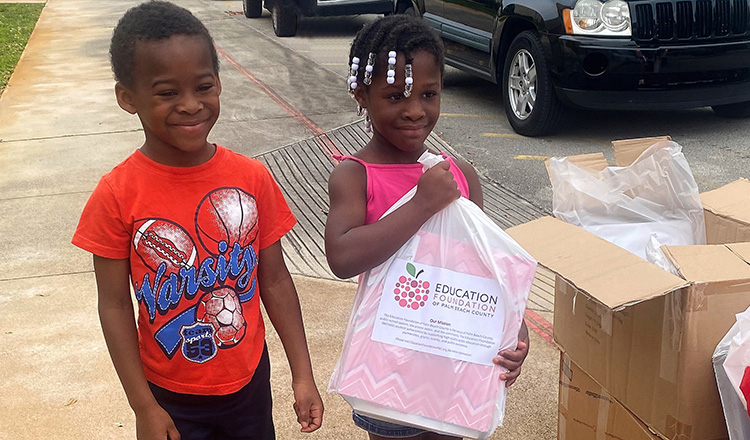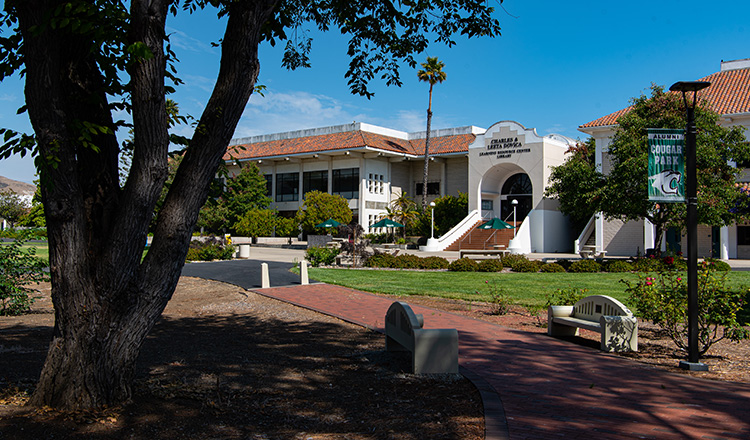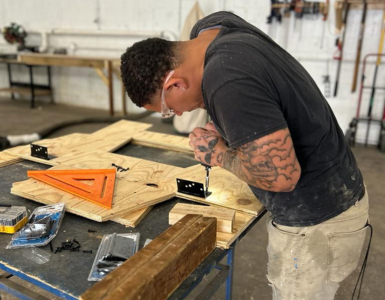The coronavirus and its impact on society have shone an even brighter light on many long-standing economic and racial inequalities across the country, including at America’s schools. With classes moving online, many students still lack the technology to make home-learning possible, especially those in low-income areas. This puts these children at risk of falling behind better-equipped peers.
Equal access to education
The health and humanitarian crisis has uncovered inequalities in the classroom. These nonprofits are working to close the gaps
As recently as 2018, nearly 17 million children lived in homes without high-speed Internet access and more than 7 million lacked a laptop, desktop or tablet at homefootnote1. Closed school buildings can also mean missed meals for the nearly 30 million kids nationwide who qualify for free or reduced-price lunchesfootnote2. And at community colleges, undergraduates who are often balancing schoolwork with jobs have felt the double sting of lost wages and closed classrooms.
Below, three school systems share how they are working to end inequality in education and create opportunity for their students after graduation.
City Colleges of Chicago Foundation
City Colleges of Chicago Foundation
In the below video, Chancellor Juan Salgado, also a community college graduate, discusses the challenges facing the more than 74,000 students at City Colleges of Chicago amid an economic downturn brought on by the coronavirus. With a curriculum tailored to job training, the seven school system prides itself on being an engine for upward mobility. Nearly half the student body is Hispanic-Latino, and Black students make up a further 27% of the student body. And the Chicago neighborhoods hardest hit by job losses and the virus are also where the school’s students largely live. Even before the coronavirus, 64% of surveyed students reported being either food or housing insecure at some point within the past year.
A $250,000 grant from Bank of America, part of the bank’s $100 million commitment to communities in need on top of its annual $250 million philanthropic contributions, is helping students experiencing a serious financial emergency. “The coronavirus has put our students’ lives on pause,” says City Colleges of Chicago board chair Walter E. Massey. “Support from the private sector is critical in helping to keep them learning and preparing for careers, life and the future once the disruptions from the coronavirus have passed.”
The Education Foundation of Palm Beach County
Florida’s Palm Beach County School District is facing an achievement gap, and it’s not alone. Like many school districts across the US, despite residing in one of Florida’s wealthiest counties, more than 100,000 of nearly 179,000 students live in poverty–an economic disadvantage playing out in the classroom. “Educational gaps are prevalent among our students living in poverty, including in low-income communities with a high percentage of minorities,” says James Gavrilos, president and CEO of The Education Foundation of Palm Beach County, a nonprofit dedicated to improving Palm Beach County schools.
When the coronavirus forced the district to transition to remote learning, it quickly became clear that educational disparities would widen unless all children could get the technology needed. Bank of America donated $40,000 to the Foundation’s Rise to the Challenge initiative. That program distributed computers and supplies through the schools’ ongoing daily takeout meal program for children from low-income households—helping to ensure that they can log in and learn. The coronavirus, Gavrilos notes, “Has exposed how inclusion and equity are the challenges facing us as we move into the future.”

Cuesta College Foundation
Students come to Cuesta College’s three campuses in California’s San Luis Obispo County for a variety of reasons, including vocational training; to build their academic skills for a transition to a four-year university; or simply to resume an education they paused earlier in life.
For all students, the educational experience drastically changed last spring. “In one week, faculty, administration and staff moved 1,300 classes to an online platform,” says Karen Tacket, a director of philanthropy for the Cuesta College Foundation. That shift came at a time of economic stress for Cuesta students. More than 60% of them also have full- or part-time jobs, the majority tied to tourism. Many students lost their jobs overnight and are having difficulty making ends meet.
Bank of America’s $10,000 grant to Cuesta's Assistance for Student Emergencies (CASE) helped the Cuesta College Foundation provide students with $250 to $1,000 cash payments to cover basic needs. That included laptops so students could continue learning and earning credits online. With remote teaching successfully in place, Tacket says, the school’s next challenge is developing online tutoring programs to supplement those classes.

As nonprofits adjust to addressing increased needs in their local communities, Bank of America is committed to supporting them. Learn more about the bank’s $100 million philanthropic commitment to more than 1,300 nonprofits on the front lines, which is in addition to $250 million in annual philanthropic giving.
Originally published 10/06/2020
Explore more

Taking action to support our communities, clients and teammates

Education that's transforming lives and communities

